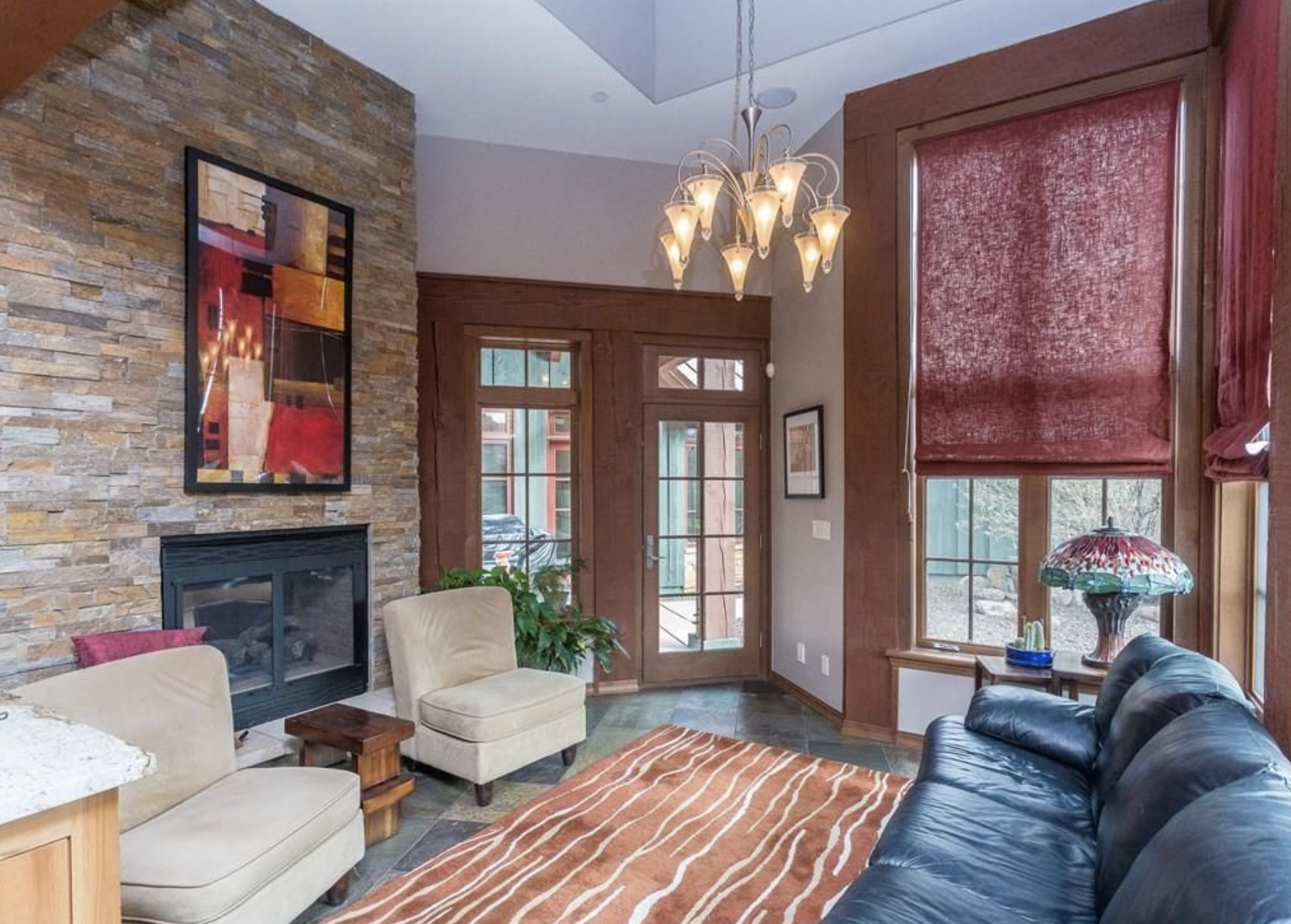Social Links Widget
Click here to edit the Social Media Links settings. This text will not be visible on the front end.
Top 10 qualities to look for in an agent


Buying a home is one of the most significant financial and emotional purchases of a person’s life. That’s why it is so important to find an agent that can not only help you navigate the home search process, but one who can also answer your questions and represent your needs from start to finish. Most importantly, your agent should care about your happiness and ensuring that you find the home that best fits your needs. Here are some qualities to consider when selecting a real estate agent:
- Someone you like. More than likely, you will be spending a lot of time with your agent, so look for someone that you enjoy interacting with.
- Someone you trust. One of the best ways to find an agent who you feel you can trust is to ask friends and family for a referral. Another way to do this is to interview different agents and ask for client references.
- Someone who listens. While your agent can’t read your mind, they should be able to make educated recommendations and offer advice by listening closely to your needs. Make sure you talk to your agent about your priorities, what types of features appeal to you, as well as any factors that could be deal breakers. This will arm your agent with everything they need to help find you the perfect home.
- Qualified and experienced. Make sure your agent has the qualifications and experience to meet your specific needs. For example, some agents have more experience with short sales, while others might be experts on certain neighborhoods or types of housing. Your agent should also be fully trained in contract law and negotiations.
- Knowledgeable. A great agent is someone who is out in the neighborhoods, exploring communities, visiting listings, performing marketing analyses, and collecting all the information that you need to make an informed, confident decision about your real estate needs.
- Honest. Your agent should be upfront and honest with you about every aspect of your home search process – even if it involves delivering bad news. The best real estate agents are more concerned about finding the right home for their clients, not just the home that brings in the fastest commission check.
- Local. Every community is different and all real estate is local, so it’s important to find someone who really knows the local market and can provide you with whatever information you need to familiarize yourself with a particular area..
- Connected. A well connected agent will have relationships with lenders, inspectors, appraisers, contractors, and any other service provider you might need during your home search.
- Straight forward. You want an agent who will work hard to help you find the best home, but you also want someone who will be straight forward with you about the process, the market reality, and what is realistic for you.
- Committed. Your agent should be in it for the long haul, meaning that they’re looking out for your best interests every step of the way, no matter how long the process takes. The best way to find an agent with these qualities is by asking around. In all likelihood, someone within your circle of friends or family will have experiences to share and professionals to recommend. You can also search for agents based on area, so you know you’re getting someone who is knowledgeable of the neighborhood(s) you’re interested in.
5 Deal Breakers that can blindside home buyers

 Purchasing a home can be a complex endeavor for even the most well prepared home buyer. You’ve diligently saved for your down payment, followed the market, researched agents and now you are ready to make an offer on your dream home. Don’t let these 5 “Deal Breakers” come between you and your new home.
Purchasing a home can be a complex endeavor for even the most well prepared home buyer. You’ve diligently saved for your down payment, followed the market, researched agents and now you are ready to make an offer on your dream home. Don’t let these 5 “Deal Breakers” come between you and your new home.
- Big Purchases on Credit. It is tempting to buy the furniture for your new home or a new car for the garage before the sale closes. Take care if you are making these purchases on credit. Large purchases on credit can have a major impact on your credit profile which effects your mortgage application. It’s a better plan to wait until after closing or pay cash for these transactions or you may be putting that furniture in a different living room than you originally picked them out for.
- Overpaying. Before your bank will approve your mortgage they will appraise the home you are purchasing. If they feel you are overpaying they are likely to decline your mortgage application. If you find yourself in this situation consult with your agent on renegotiating your offer to be more in line with the bank’s appraised value.
- Purchasing too close to Foreclosure. If you are making an offer on a house which is facing foreclosure be sure to have a closing date set before the foreclosure date. Have your agent work with the lender to structure closing before the house goes back to the bank and into foreclosure.
- IRS liens. You’ve heard the old saying “Death and Taxes”. Back taxes and liens can derail your attempts to get financing for a mortgage so be sure to have your books in order before filing your loan application.
- Comprehensive Loss Underwriting Exchange (CLUE). CLUE is a data base of insurance claims for both people and property. Your home insurance rates are determined by the information about you and the property you plan to purchase which is contained in this report. Past claims for water damage, falling trees and even dog bites from present and past owners can multiply your insurance rates. Consult your agent about the CLUE report for your future home as soon as possible once your home purchase offer is accepted.
When purchasing a home there will be challenges which you can plan for and the unexpected hurdles. By educating yourself as a consumer and choosing a well trained real estate agent you can avoid many of the pitfalls of 21st century home ownership.
What about you? Tell us if you have had any “deal breaker” experiences.
When Buying a Short Sale Home is the Right Fit


Purchasing a home can feel overwhelming at times, but a short sale home offers a unique opportunity for a prospective buyer. A short sale occurs when a homeowner owes a lender more than their home is worth, and the lender agrees to let the owner sell the home and accept less than what is owed. Lenders may agree to a short sale because they believe it will net them more money than going forward with a lengthy and costly foreclosure process.
Short sales do differ in a number of ways from conventional home sales. Here are a few things to consider if you’re thinking about buying a short sale property.
- Short sale homes sell for less, but not significantly less than market value.
Buyers hoping to snap up a home for half the market value will be disappointed. The selling price for short sales averages about 10 percent less than for non-distressed properties. The bank is looking to recover as much of the value of the home as possible, so they will not accept offers that are significantly under market value. That said, with savings that can equal tens of thousands of dollars, a short sale is a great way to get more house for your money.
- Short sale properties are sold “as is”.
The lender will not be making repairs to the home. Any improvements that need to be made are most likely going to be the responsibility of the buyer. A savvy buyer’s agent/broker will get contractor bids for any necessary repairs and use those to help negotiate a lower sales price with the bank.
- A short sale will take longer than a conventional home sale.
Once you and the seller have mutual acceptance on an offer, you need to allow 60 to 90 days for the lender approval process. There are often long stretches when the offer is slowly winding its way through the bank’s system, so buyers need to be patient.
- If you have to sell your home first, a short sale is probably not the best fit.
Lenders generally will not take contingent offers on a short sale.
- A short sale is one real estate transaction that you shouldn’t attempt on your own.
Short sales are complicated transactions that involve a different process and significantly more paperwork than a standard real estate sale. An agent/broker that is unfamiliar with short sales can write an offer in such a way that they inadvertently cause their buyers to lose the deal. An experienced short sale agent/broker will protect your interest and help the process move forward smoothly.
The bottom line: As long as you can be patient, and are working with an agent/broker who understands the process, buying a short sale is a great way to purchase the house you want at a price you’ll love.
When Buying a Short Sale Home is the Right Fit

Purchasing a home can feel overwhelming at times, but a short sale home offers a unique opportunity for a prospective buyer. A short sale occurs when a homeowner owes a lender more than their home is worth, and the lender agrees to let the owner sell the home and accept less than what is owed. Lenders may agree to a short sale because they believe it will net them more money than going forward with a lengthy and costly foreclosure process.
Short sales do differ in a number of ways from conventional home sales. Here are a few things to consider if you’re thinking about buying a short sale property.
- Short sale homes sell for less, but not significantly less than market value.
Buyers hoping to snap up a home for half the market value will be disappointed. The selling price for short sales averages about 10 percent less than for non-distressed properties. The bank is looking to recover as much of the value of the home as possible, so they will not accept offers that are significantly under market value. That said, with savings that can equal tens of thousands of dollars, a short sale is a great way to get more house for your money.
- Short sale properties are sold “as is”.
The lender will not be making repairs to the home. Any improvements that need to be made are most likely going to be the responsibility of the buyer. A savvy buyer’s agent/broker will get contractor bids for any necessary repairs and use those to help negotiate a lower sales price with the bank.
- A short sale will take longer than a conventional home sale.
Once you and the seller have mutual acceptance on an offer, you need to allow 60 to 90 days for the lender approval process. There are often long stretches when the offer is slowly winding its way through the bank’s system, so buyers need to be patient.
- If you have to sell your home first, a short sale is probably not the best fit.
Lenders generally will not take contingent offers on a short sale.
- A short sale is one real estate transaction that you shouldn’t attempt on your own.
Short sales are complicated transactions that involve a different process and significantly more paperwork than a standard real estate sale. An agent/broker that is unfamiliar with short sales can write an offer in such a way that they inadvertently cause their buyers to lose the deal. An experienced short sale agent/broker will protect your interest and help the process move forward smoothly.
The bottom line: As long as you can be patient, and are working with an agent/broker who understands the process, buying a short sale is a great way to purchase the house you want at a price you’ll love.
The Risks and Rewards of Purchasing a Bank-Owned Home


The process of purchasing a home directly from a lender can be long and arduous, but could very well be worth it in the end. If you have your sights on a particular home or are looking to find a deal on your first, working directly with the lender may be your only option. Purchasing a bank-owned home is not for the faint of heart, here are some tips for negotiating the REO process:
1. Be prepared: The condition of bank-owned properties are often poor and hard to show. Past owners may have departed on bad terms, leaving the home in poor condition with foul smells, missing appliances, wires taken from breakers, gas fireplaces gone, even bathrooms without toilets and sinks.
2. Understand the costs: Maintenance or repairs may be necessary, since these homes have been vacant for an unknown period of time–sometimes months or years. Keep in mind, when they were occupied the owners could have been under a financial hardship, preventing them from doing regular seasonal care or repairs when needed. Remember as well that the bank is trying to sell the house immediately, so you will receive a financial break in the price rather than a willingness to negotiate on the maintenance and repair issues.
3. Accept the unknown: In traditional real estate transactions, homeowners fill out Form 17 regarding important information about the history of the house. A bank owned home is either exempt or marked with “I don’t know” throughout the document. Not having the accuracy of this 5-page disclosure form could leave you with a lot of unanswered questions on the history of the home.
4. Know what is non-negotiable: The pricing on the house may not get much lower. Some of these properties can be “a dream come true” if you get them at an amazing price, or they could be your worst nightmare. Do your due diligence researching any property, and conduct all necessary inspections to safeguard yourself. Some major repairs may be negotiable, but will likely not reduce the home price.
5. Make a clean offer: The higher the price you can offer, the better. Include your earnest money, keep contingencies to a minimum, and suggest a reasonable closing date. The simpler your offer is, the higher chance you have of the bank accepting your offer or countering in a reasonable time period.
6. Be patient: Consult with a professional who handles bank owned home purchases to help you negotiate the pathway to homeownership. The process of purchasing a bank-owned, foreclosed or short-sale home is typically longer than a typical real estate sale.
10 Key Qualities to Look for When Selecting an Agent


Buying a home is one of the most significant financial and emotional purchases of a person’s life. That’s why it is so important to find an agent that can not only help you navigate the home search process but one who can also answer your questions and represent your needs from start to finish. Most importantly, your agent should care about your happiness and ensuring that you find the home that best fits your needs.
Here are some qualities to consider when selecting a real estate agent:
-
- Likable. More than likely, you will be spending a lot of time with your agent, so look for someone that you enjoy interacting with.
- Trustworthy. One of the best ways to find an agent who you feel you can trust is to ask friends and family for a referral. Another way to do this is to interview different agents and ask for client references.
- Effective listener. While your agent can’t read your mind, they should be able to make educated recommendations and offer advice by listening closely to your needs. Make sure you talk to your agent about your priorities, what types of features appeal to you, as well as any factors that could be deal breakers. This will arm your agent with everything they need to help find you the perfect home.
- Qualified and experienced. Make sure your agent has the qualifications and experience to meet your specific needs. For example, some agents have more experience with short sales, while others might be experts on certain neighborhoods or types of housing. Your agent should also be fully trained in contract law and negotiations.
- Knowledgeable. A great agent is someone who is out in the neighborhoods, exploring communities, visiting listings, performing marketing analyses, and collecting all the information that you need to make an informed, confident decision about your real estate needs.
- Honest. Your agent should be upfront and honest with you about every aspect of your home search process – even if it involves delivering bad news. The best real estate agents are more concerned about finding the right home for their clients, not just the home that brings in the fastest commission check.
- Local. Every community is different and all real estate is local, so it’s important to find someone who really knows the local market and can provide you with whatever information you need to familiarize yourself with a particular area.
- Connected. A well-connected agent will have relationships with lenders, inspectors, appraisers, contractors, and any other service provider you might need during your home search.
- Straightforward. You want an agent who will work hard to help you find the best home, but you also want someone who will be straightforward with you about the process, the market reality, and what is realistic for you.
- Committed. Your agent should be in it for the long haul, meaning that they’re looking out for your best interests every step of the way, no matter how long the process takes. The best way to find an agent with these qualities is by asking around. In all likelihood, someone within your circle of friends or family will have experiences to share and professionals to recommend.
 Facebook
Facebook
 Twitter
Twitter
 Pinterest
Pinterest
 Copy Link
Copy Link